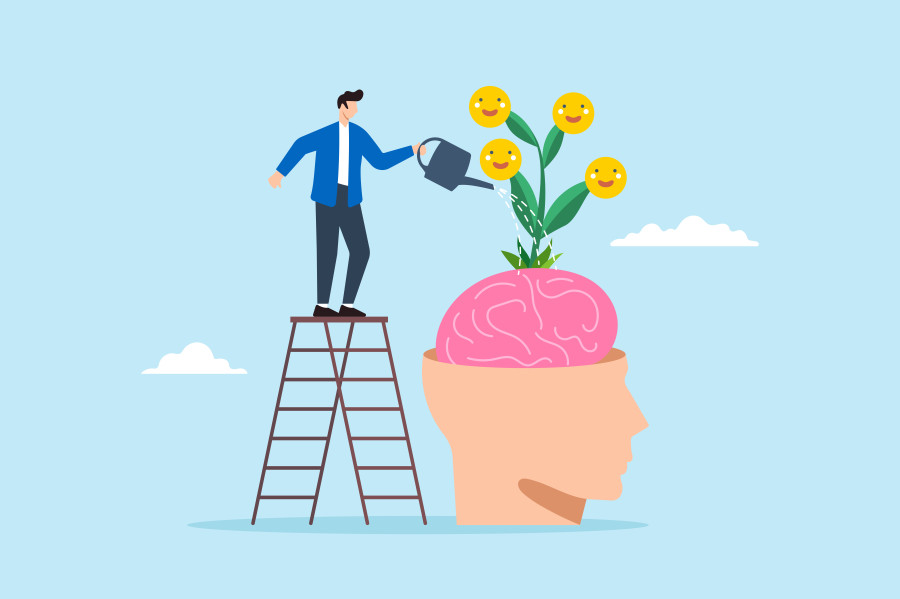Culture & Lifestyle
Addressing men’s mental health
On International Men’s Day, it’s vital to recognise the mental health struggles men face and the societal pressures that prevent them from seeking help.
Dipesh Tandukar
Did you know that November 19 is observed as International Men’s Day? Many people might not be familiar with this. Unlike other well-known and widely celebrated days, it hasn’t received as much attention, which is understandable.
Since men are often perceived as the dominant gender, there is a tendency to assume they can handle most challenges on their own. This belief can lead to the idea that days like International Men’s Day are unnecessary. However, the importance of addressing issues like men’s mental health is often underestimated. When we examine the facts, a stark contrast emerges between our assumptions and reality.
Men are less likely to seek help for anxiety and stress compared to women, which can lead to untreated mental health issues and exacerbate symptoms. They often display anxiety through anger, irritability, or substance use rather than seeking support. Men are more than 3.5 times more likely to die by suicide than women, often due to societal expectations and traditional gender roles discouraging them from seeking help.
Additionally, men are less likely than women to seek treatment for mental health issues. Only 1 in 3 men take medication for depression or anxiety, and just 1 in 4 have spoken to a mental health professional. Men are more likely to use alcohol and drugs as coping mechanisms rather than talking about their feelings.
These issues primarily arise from a common challenge many men face: the difficulty of opening up and seeking help. While factors like upbringing, peer influence, and the support systems one has built can play a role, the undeniable truth remains that these problems are real and significant.
A common story for many men is the desire to succeed in life. This doesn’t mean women don’t feel the same way, but often, a man’s mental health is associated with how much they have accomplished in their life and what they can do further. The stigma surrounding mental health is already a significant barrier to addressing these issues effectively. When combined with the traditional expectation that men should be strong, stoic, and self-reliant, this problem is only exacerbated. Without changes to these societal norms, men will continue to feel discouraged from expressing their emotions and seeking help, perpetuating these challenges and leading to even more significant issues in the future.
This doesn’t mean men should suddenly start sharing all their thoughts and emotions, but it also highlights the need for a safe outlet for them. Raising awareness about men’s mental health issues doesn’t diminish the importance of addressing mental health for other groups, such as women, children, the elderly, or LGBTQ+ individuals. The reality is that vital conversations about mental health are still not happening as they should.
This remains a significant challenge for anyone striving to create meaningful change, not just in men’s mental health but in the broader field of mental health. Conversations that lead to real change are essential.
Bringing about change has always been challenging. Many adults struggle to open up because their thoughts and beliefs have become rigid over time, making it harder to shift their perceptions of what the norm should be. However, one positive approach lies in starting early. Teaching and guiding younger generations in schools about the importance of mental health and how it should be understood and addressed can be highly effective. While this approach may take time to show results, it promises lasting, meaningful change that works in the long run.
What about the present? Can we do something for men’s mental health now? The simple answer is yes, but it will still require time. One effective way to educate and reach those with rigid or traditional mindsets is through consistent engagement and meaningful conversations. This means organising recurring awareness sessions on mental health topics to promote understanding and empathy.
Just as we teach children basic math or English through repetition and practice, the same approach can be applied to mental health. By repeatedly reinforcing the importance of mental well-being and creating safe spaces for discussion, we can gradually break down stereotypes and foster healthier attitudes toward mental health.
Raising awareness also means keeping the conversation about mental health open. You don’t need to share everything all at once, but it’s essential to talk about what’s bothering you, especially with people who care about you. Finding a group of individuals who understand and support you can indeed be a blessing.
Counselling can be an excellent option for those who feel unheard or lack the support they need from their peers. It provides a safe space to explore thoughts and express feelings without fear of judgment. Take it one step at a time. Remember, it’s never too late to reach out and seek help.
Tandukar works as an organisational psychologist at FHEAL, a counselling hub for mindful healing.




 22.65°C Kathmandu
22.65°C Kathmandu















